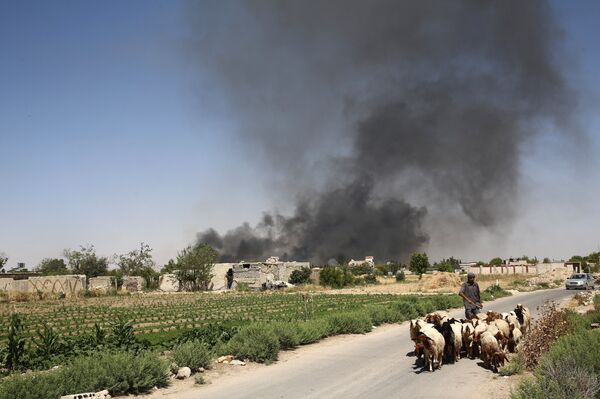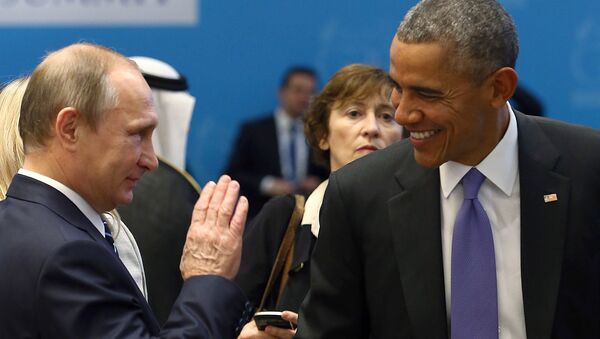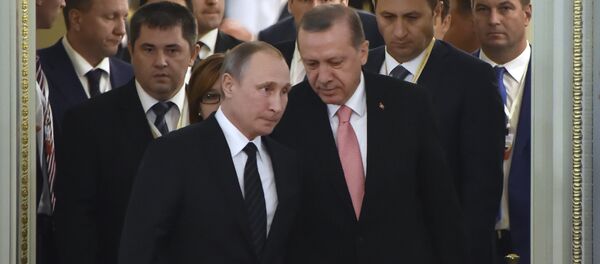Pakhomov described the chances that this will indeed take place as "higher than one could suppose" when looking at the overall state of US-Russian relations.
"This cooperation, if it materializes, will be very limited and goal-oriented, but it can still deal a couple of decisive blows to [Daesh] and other terrorist organizations," he added.
Both countries will apparently benefit from the cooperation. For instance, the United States would have "a chance to contribute to Syria's stabilization and the fight against Islamic extremism without direct engagement with Assad," the analyst noted.

Policymakers in Washington have long publicly called for the Syrian president to resign. Working directly with Assad could be a tough sell at home, especially during the election season.
For its part, Washington should not view Russia's activities in the Middle East in terms of a zero-sum game, since Moscow's goals in the region are not "anti-American" per se, as the analyst put it.
"One can argue that the United States sees the region as its exclusive domain, where a Russian presence is inadmissible," he said. If so, the US should ask itself what is more damaging to America's security interests: "a Russian presence in the Middle East that stabilizes the region, or a Middle East in continuous turmoil, becoming more and more a hotbed of international terrorism?"

However, Moscow does not intend to "police" the region, he added. Russia's approach is "based on the understanding that the stronger the states in the region, the higher their capacity to deal with extremists and terrorists."
In this context, there are hardly any reasons for both countries not to cooperate on Syria.
If Washington refrains from working with Moscow, it "will find itself under domestic and international pressure to address the Syrian situation more decisively, yet it will lack good options to do so. And Moscow will increasingly risk encountering regional challenges that it has very limited resources to effectively address," the analyst observed.
Should this happen, Russia will most likely scale down its military presence in the region.
The United States, he added, will then remain "stuck there dealing with growing threats to its essential security interests."





